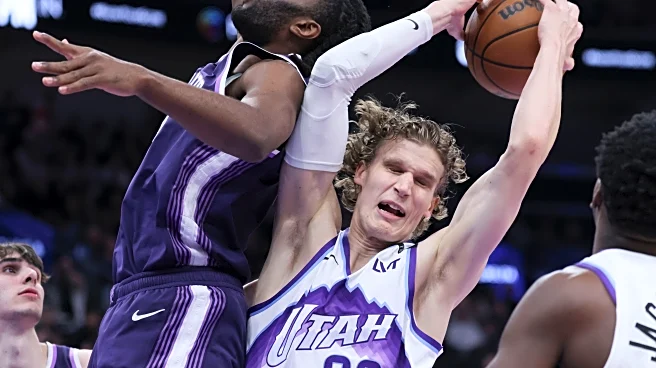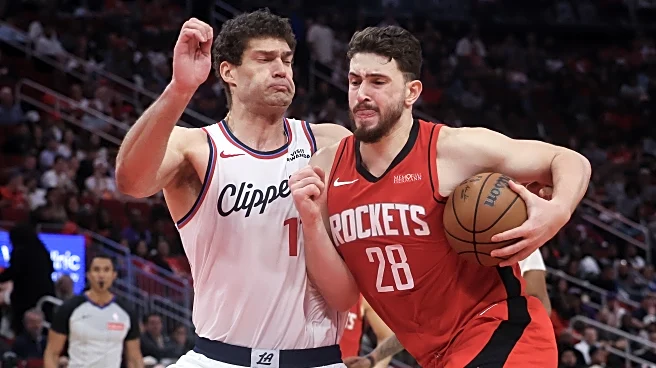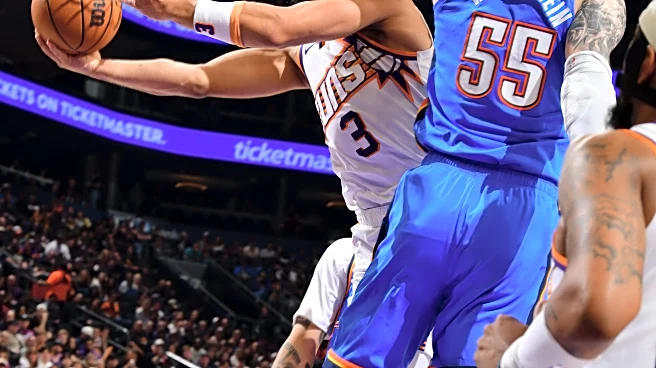What's Happening?
Fantasy football enthusiasts are advised to focus on tight ends who exhibit traits similar to wide receivers during their draft strategy. The article highlights the importance of selecting tight ends with high target shares and efficiency metrics, akin to top-performing wide receivers. Players like Brock Bowers and George Kittle are noted for their ability to generate significant yards after the catch, making them valuable assets in fantasy leagues. The strategy involves balancing the opportunity cost of selecting a tight end early in the draft against securing strong starters at other positions like wide receiver or running back.
Why It's Important?
This strategy is crucial for fantasy football players aiming to maximize their team's performance. Tight ends who perform like wide receivers can provide consistent scoring opportunities, reducing the need for frequent roster changes. By understanding the metrics that align tight ends with wide receiver performance, players can make informed decisions that enhance their team's competitiveness. This approach can lead to a more stable lineup, minimizing the risk of weak production from other positions and potentially increasing the chances of winning in fantasy leagues.
What's Next?
Fantasy football players will continue to evaluate tight ends based on their target share, yards per route run, and red-zone efficiency. As the NFL season progresses, these metrics will guide players in making waiver claims and adjusting their rosters. The focus will be on identifying tight ends who can consistently contribute to scoring, especially in matchups against weaker defenses. This ongoing analysis will be essential for maintaining a competitive edge in fantasy leagues.
Beyond the Headlines
The emphasis on tight ends as wide receivers reflects broader trends in NFL gameplay, where versatility and adaptability are increasingly valued. This shift may influence how teams utilize tight ends in real games, potentially affecting player roles and team strategies. Additionally, the fantasy football community's focus on data-driven decisions highlights the growing importance of analytics in sports management.










